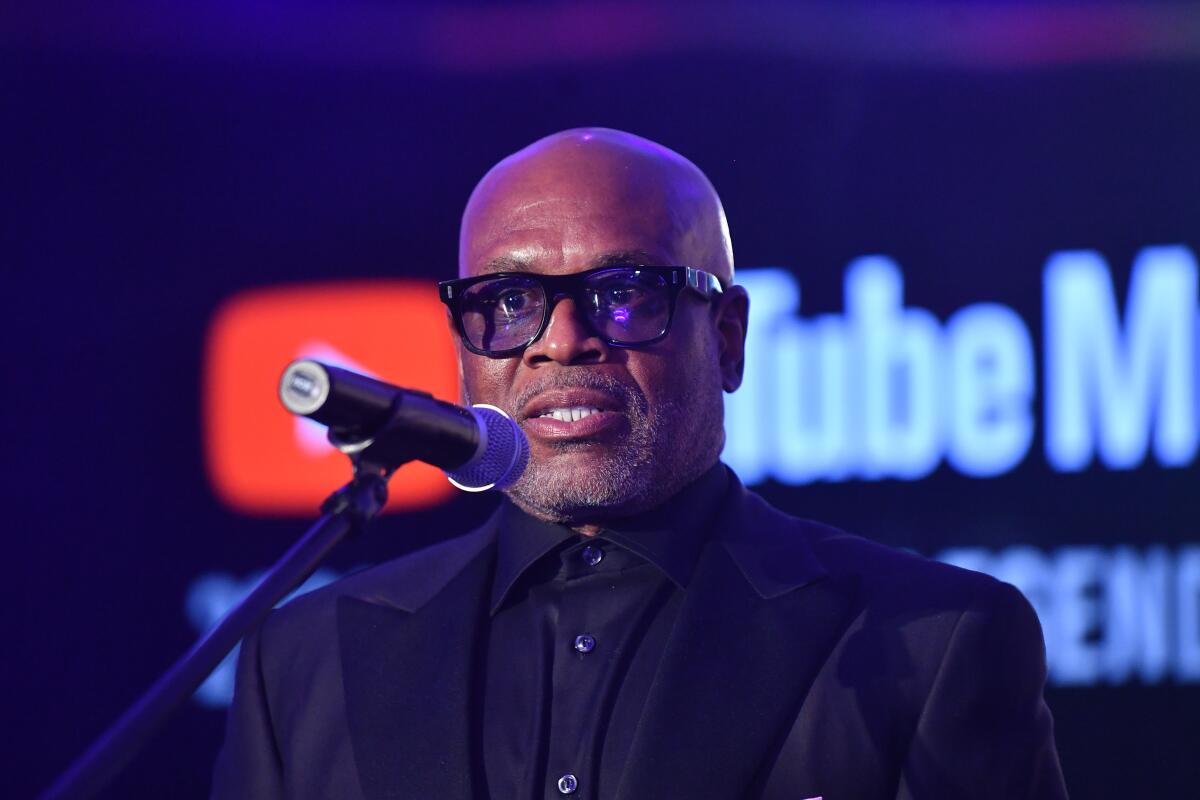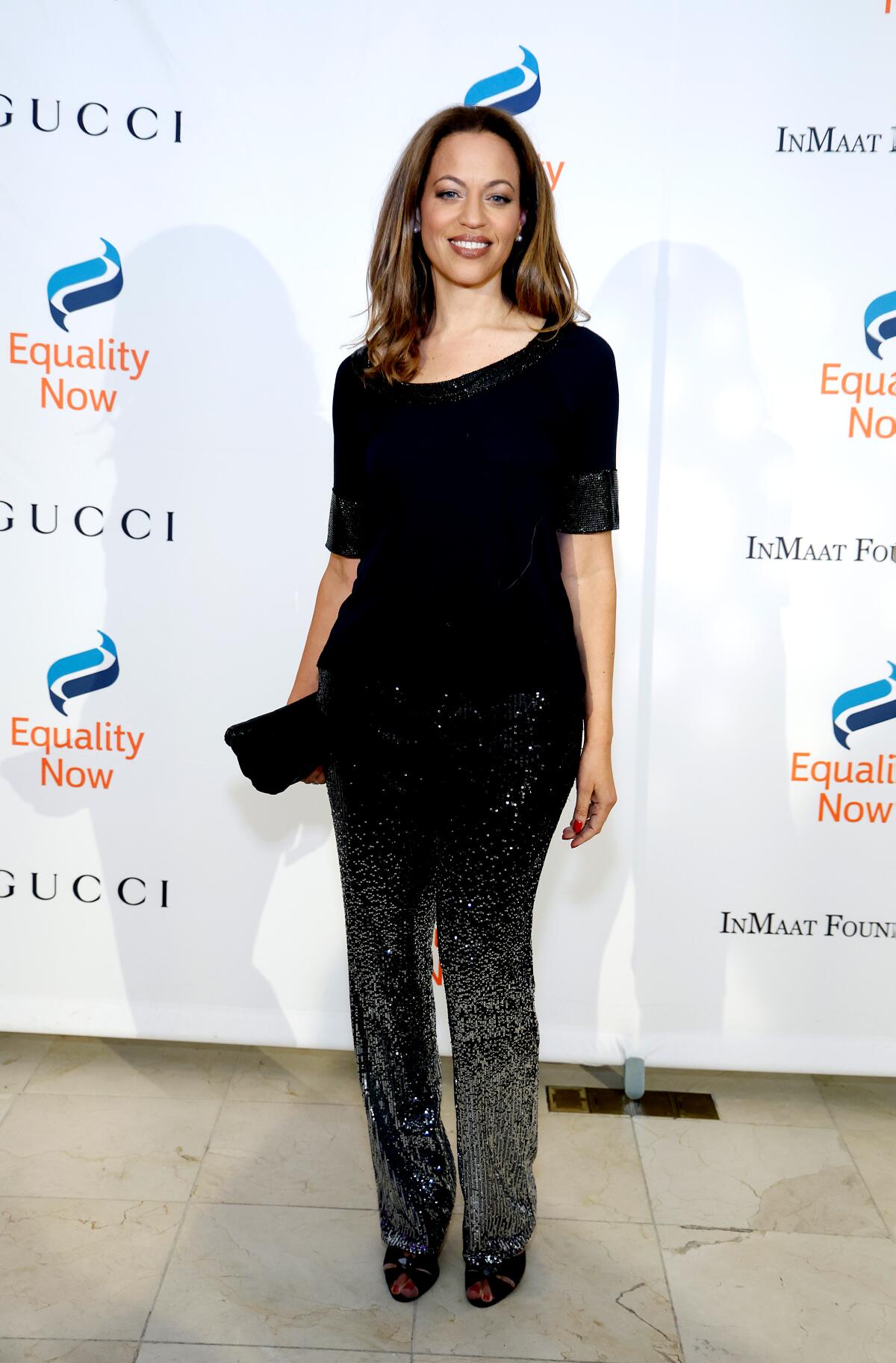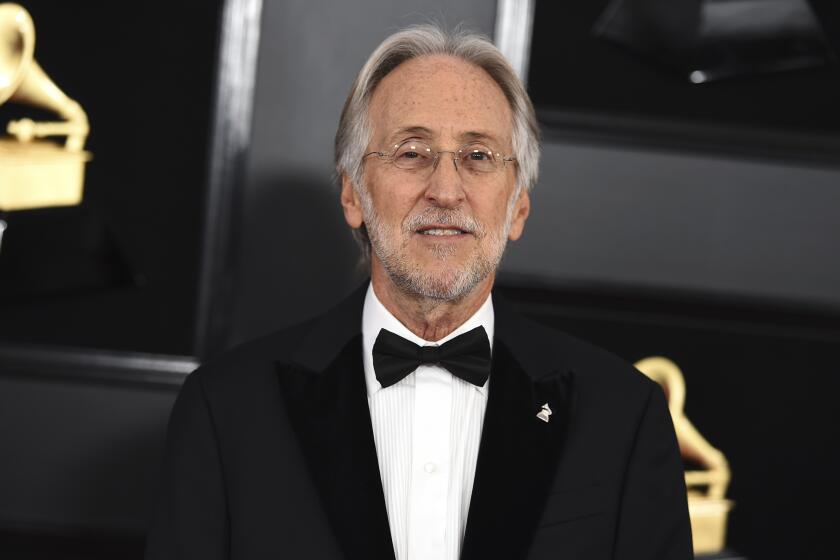Record executive L.A. Reid accused of sexual assault in lawsuit

- Share via
Music executive Antonio “L.A.” Reid, a Grammy winner who led Arista and Epic Records, has been accused of sexual assault and harassment in a new lawsuit.
Drew Dixon, a former vice president of A&R at Arista, filed the lawsuit in federal district court in Manhattan on Wednesday. The suit alleges that Reid “sexually harassed Ms. Dixon and refused to allow her to succeed unless she acquiesced to his demand to be alone and in close proximity to her, where he would create the opportunity to sexually assault her on two separate occasions.
“This litigation is not only about the horrific physical assaults that Ms. Dixon had to endure,” the suit says, “but it is also about the irreparable damage done to the rare and blossoming career of an extraordinary talent.”
A representative for Reid did not return requests for comment Wednesday. In a statement to The Times, Dixon said, “L.A. Reid is a known predator, who uses his singular professional power to force himself on his victims. In my case, his persistent campaign of sexual harassment and assault forced me to abandon the work I loved when I was at the top of my game in the music business, having worked my way up from internships and a job as a receptionist.”
The New York Times first reported news of the lawsuit.

Dixon had previously accused music mogul Russell Simmons of assaulting her in a 2017 New York Times article and 2020 documentary “On the Record.” (Mr. Simmons denied the allegations.)
Reid, 67, was a co-founder of the influential Atlanta record label LaFace, and in 2000 replaced executive Clive Davis atop Arista Records. He was instrumental in signing acts including Usher, OutKast, Pink and Avril Lavigne to those labels.
When Reid took the top job at Arista, Dixon, now 53, was an A&R executive there, having previously worked with Simmons at the pioneering hip-hop label Def Jam. Dixon shepherded a number of hits for Arista, including Whitney Houston’s “It’s Not Right but It’s Okay” and Carlos Santana’s “Maria Maria.”
Dixon’s suit alleges that in 2001, on a private flight to a company event in Puerto Rico, Reid “asked her to sit next to him to go over materials for the presentation, and then he began playing with her hair, kissing her and digitally penetrated her vulva without her consent.”
An unnamed musician has accused former Recording Academy CEO Neil Portnow of drugging and raping her in a New York hotel room in 2018.
Months later, Dixon says that she was in New York with Reid when he asked her to listen to a demo recording of a new artist inside his car. “Shortly into the ride, Mr. Reid again, without Ms. Dixon’s permission or consent began to grope and kiss Ms. Dixon, who squirmed and pushed him away as Mr. Reid’s driver stared straight ahead,” the suit alleges. “When Mr. Reid complained and became visibly irritated with her lack of compliance, Ms. Dixon froze. Mr. Reid again digitally penetrated Ms. Dixon’s vulva without her consent.”
Dixon claims that, after the two incidents, “Mr. Reid would directly respond to Ms. Dixon’s rejection of his sexual advances by punishing the artists Ms. Dixon had already signed or by blocking the artists she attempted to sign,” which included future superstars Kanye West and John Legend.
She left the label in 2002 to pursue an MBA at Harvard, and though she sporadically worked in music afterwards, she said she struggled to continue her career. “After her experiences with Mr. Reid, Ms. Dixon gave up her career,” the suit states. “Unable to bounce back from Mr. Reid’s sexual assaults, harassment, and his consistent tethering of his sexual advances to professional obstacles that he placed in Ms. Dixon’s path; Ms. Dixon became depressed and dejected, ultimately abandoning her professional passion and expertise.”
After these alleged incidents, Reid became a judge on “The X Factor” and took the top job at Epic Records in 2011, where he oversaw chart-topping records from Future and Travis Scott. In 2017, Reid resigned from Epic after a female assistant accused him of sexual harassment. In 2018, he founded Hitco, a label that’s released music from Jennifer Lopez and Big Boi of Outkast. His latest venture is Mega, a music collective he co-founded with Usher.
Dixon’s suit comes after passage of the Adult Survivors Act, a New York law that opened a one-year period for civil lawsuits from anyone above the age 18 when they claim they were abused or assaulted. The law’s timeline for filing such suits closes on Nov. 24.
“Thanks to the ASA, hundreds of survivors in the state of New York have already held their abusers accountable,” Dixon said to The Times. “Today I found the courage to join them.”
More to Read
The biggest entertainment stories
Get our big stories about Hollywood, film, television, music, arts, culture and more right in your inbox as soon as they publish.
You may occasionally receive promotional content from the Los Angeles Times.












